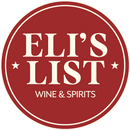A.O.C.:
Stands for Appellation d'Origine Contrôlée and is the French certification granted to certain geographical areas for wine. Under the auspices of the Institut National de l’Origine et de la Qualite (a branch of the French Ministry of Agriculture), it is a way to assure consumers that the wine they are buying is indeed from the region it says it is from.
AOCs in France vary in size. Some span vast areas with different soil varieties, while others are very small and consistent. The Cotes du Rhone, for example, is 150 square miles. Within the Cotes du Rhone, there is tiny AOC known as Chateau-Grillet that is less than 10 acres.
biodynamic:
Biodynamic wines are the new trend.
Basically the biodynamic method sees the vineyard as a living, breathing ecosystem; the vines, the grapes, the soil and all the plants, flowers and the animals, insects and birds and bees in the area are a considered a cohesive, interconnected and interdependent whole.
The big difference between biodynamic and organic is that biodynamic agriculture is also holistic and somewhat spiritual in nature, tying it to astrological influences and lunar cycles.
A ‘biodynamic wine’ means that the grapes are farmed biodynamically, and that the winemaker did not make the wine with any customary manipulations such as yeast additions or acidity adjustments.
A wine ‘made from biodynamic grapes’ means that a vintner used biodynamically grown grapes, but did not completely adhere to the biodynamic rules in winemaking.
cave:
A wine cellar
certified organic:
There are two different types of organic listings: An ‘organic wine’ is a wine made from certified organically grown grapes and made without added sulfites. Or a wine can be ‘made from certified organically grown grapes’, i.e. grapes grown without added chemicals or additives.
clos:
Historically a clos was a prestigious vineyard that was walled. Today, even if it is not enclosed or walled, a clos is a special vineyard.
cuve:
A vat
D.O.C.G:
Stands for Denominazione di Origine Controllata e Garantita. Literally translated as ‘controlled designation of origin guaranteed,’ it’s the Italian version modeled on the French A.O.C. and like the French, assures consumers that the wine they are buying comes from a certain region.
In Italy though, wines are tasted by government-licensed before being bottled and to prevent manipulation, bottles are sealed with a numbered governmental seal on the cork.
domaine:
Vineyards
exposure:
Refers to the vines’ exposure to the sun
lutte raisonee:
Literally, “reasoned struggle.” It is a middle of the road path between conventional and organic viticulture. Theoretically, lutte raisonnee means reducing the use of chemical pesticides on the vines, even completely abolishing them, while leaving the vintner the right to treat the vines with chemicals at his discretion, should dire needs dictate. But practically, vintners have their own philosophies, some more organic and others more conventional and needless to say, everyone thinks their method is the right one. Having said that, the lutte raisonnee method has been responsible for the trend towards a more organic approach to viticulture and a substantial reduction in chemical pesticides and herbicides.
middle of the hill:
Vines planted in the middle of a hill generally ensure greater exposure to sunlight, good drainage so that the grapes don’t get too filled with water, the dryness forcing the vine to bear better fruit rather than foliage.
parcel:
Plot of land
sustainable:
The ‘Sustainable Method’ can be compared to the ‘Lutte Raisonnee’ as it is not one practice based on a set of rules, rather a range of practices that are not only ecologically sound, but also economically viable and socially responsible. Sustainable farmers may farm largely organically or biodynamically but have flexibility to choose what works best for their individual property; they may also focus on energy and water conservation, use of renewable resources and other issues.
terroir:
It is the region where wine is produced and how the soil and climate affect the taste of the wine and give it its’ singular flavor.
unfiltered wine:
Filtering makes a wine more transparent, the goal being to make the wine crystal clear so as to be able to see through it. However, the filtering process can affect the flavor and aroma so some winemakers choose not to, especially if they want to maintain a wine as ‘organic.’
vigneron:
A winemaker or vintner
Sorry, there are no products in this collection.



